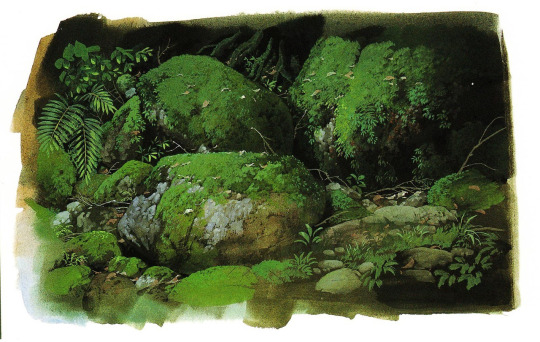Text



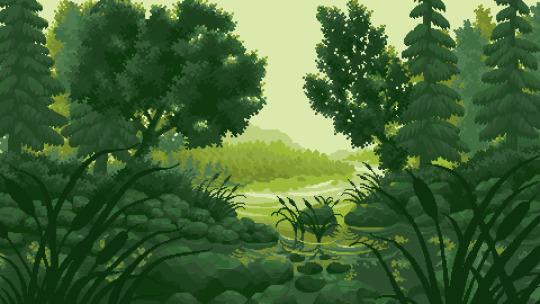
Some backgrounds I made for the game Daeon Sigil 💚💚💚!
807 notes
·
View notes
Text

Transitions 🚥
In your future's past life
Twitter | Ko-Fi | Patreon
10K notes
·
View notes
Text
The Art of Feedback
(This post cross-posted from my Patreon. Please consider supporting for access to my unreleased game prototypes, devlogs and blog posts just like this one. It helps me pay rent and supports the work I do!)
The biggest, most important ability anyone working (or hoping to work) collaboratively in gamedev should have is giving targeted feedback.
I'm not saying "you should be able to honestly tell people that their work sucks", but rather you should be able to elegantly and politely express in what specific ways their work could use improvement and, most importantly, why you believe the feedback to be valid.
In my opinion this is a lifeline skill anyone working in games needs to have.
Not being able to give polite and targeted feedback is something that sets apart an amazing dev from a competent one, and generally will make your critiques feel less like an opinion and more like a fair and specific analysis of a feature. It's what separates A Random Gamer Online complaining about a video game apart from an actual dev identifying pain points on a piece of work.
So how do you do it?
Consent
By far, the biggest thing to remember about feedback in my opinion is that feedback is all about consent.
When giving feedback you need to be positive that all parties are aware and on the same page about the feedback and its role in the conversation, and that the party receiving the feedback even wants it in the first place.
There's been countless times I've had conversations in the industry where it was obvious someone was receiving feedback that was not wanted and didn't consent to it - whether it was way too premature, focusing on the wrong part of the feature, not wanted in the first place or coming from someone who may not have been desirable to hear feedback from.
How do you navigate this? Simply ask for consent first.
A simple "Are you interested in feedback on [x] feature?", or "Is there anything you want me to focus my feedback on?" should usually suffice. If yes, give feedback. If no, don't bother!
Not only does this establish a clear line of consent, it also ensures your feedback is useful and you're not giving feedback that will fall on ears that don't want to hear it.
Empathy
Receiving feedback for many people can be intimately personal for some. Everyone has things about their work that aren't satisfactory, and entering into territory where you're pointing out these flaws can be devastating if not done correctly. There's an assumption that "honest" feedback is the way to go, but "honesty" can be a double edged sword and there's a lot of devs who deal real damage to others under the guide of "just being honest about feedback". Good feedback should be presented in a way that the recipient can take it to heart without feeling hurt. These are not mutually exclusive ideas.
To avoid this situation, the "compliment sandwich" is a time-tested method. Soften the blow of critical feedback by pairing it with compliments before and after, which allows you to deliver the feedback without it feeling like a direct attack. It's rather soulless to say "you should always talk like this", so of course this is not the end-all-be-all, but it's a good starting point for understanding how to deliver feedback in a way that doesn't harm.
In fact, I've found the structure of compliments doesn't matter as long as you're keeping the mindset of being constructive and in a 'building up" mindset about your feedback, and not a tearing down one. Usually I aim to incorporate one point of critical feedback with one compliment is often enough to soften the blow in many cases.
As an example, saying "I think your placement of the car needs work" feels colder and tonally more harmful than "I love how your use of trees to direct the player through the space, but I think the placement of the car needs work". See how those could read differently?
Additionally, you can change up your method depending on the person you're speaking to and your relationship to them.
For example, first impressions based around feedback are important. If you're giving feedback to say, a peer or student you've never talked to before, leading with complements is key. If you've been in a feedback session for a while the conversation might naturally veer into being more or less critical at certain stages, and you may find striking a constant balance of compliments may not be necessary. If someone seems defensive or upset, it might be wise to pile on some more compliments to make them feel more at ease. If you're giving feedback to someone you've know for a long time and given feedback to before it's possible you may be comfortable enough together that you may not even need to compliment at all!
TARGET
I really want to emphasize this point because this is how you make giving feedback an efficient task. If you don't know what specifically the person receiving feedback wants to receive feedback on there's a good chance you'll end up giving feedback on absolutely everything about the game, and ignore the elements that need feedback the most by doing so.
I've been in this situation plenty of times: a feature in your game is only half-implemented compared to the rest of the game, and instead of focusing on giving feedback about [x] new feature your playtester instead spends 15 minutes talking about the feature that is lacking despite the fact you already know it's missing. The feedback isn't about the thing that you as a developer need feedback on the most, and instead covers territory you're already well aware of.
As someone giving feedback, consent comes back into this. Ask "Do you need feedback on [x]?", or "What do you need feedback on the most?". This puts the ball in their court to identify what you should look out for, as opposed to you playing through and simply pointing out flaws in everything regardless of context. It also means the feedback session is going to be more effective at targeting what they need help with the most, and will be most beneficial to them in the end. In context like meetings and student feedback sessions where time is limited, this is vital to ensuring you're not wasting anyone's time.
Another way to improve the targeting of your feedback is to ensure you understand your subject's goals, and tie your feedback into that. Without this your feedback can be wildly off-base.
For example, if your subject is making a project to learn new implementation techniques, it's not going to be useful to provide feedback about their game's polish that would be more applicable to someone, say, trying to ship a game. Asking what your feedback subject's goal is with their project - or even just ensuring you address that and have a surface-level understanding about what those goals may be - is going to put you in a position of understanding what kind of feedback to give.
With this knowledge in your pocket you can now give feedback through a narrower filter that will more effectively improve their work.
"Why?"
"Why?" is the single most important question you need to attempt to answer when giving feedback. Answering "why" is how important changes get made.
Anyone can say "I think [x] feature needs to change", but not anyone can identify why it needs to change, or in what capacity. There's nothing worse than receiving feedback where a director says "I didn't like this feature" and they fail to address why they think that way. Especially as a designer, "why" is a fundamental idea needed to back up any approach you might have to changing or implementing designs - and it's why designers are often in a better position to identify changes than the average player.
Before you give a piece of feedback, ask yourself "Why do I think this?", and be prepared to include that with your feedback.
"I don't like the way the movement feels because it makes it hard to keep the enemies in my sights" is vastly more useful than "I don't like the way the movement feels". It gives what you at least believe is an actionable, and the person receiving the feedback now has a problem they may need to consider going forward.
There's truly nothing more aggravating than hearing - "I don't like this thing" without a reason why. That why needs to exist because if it didn't people would simply be making changes for no reason except "the vibes are off", and a vibes-based approach isn't exactly a sustainable one from a development angle.
Conclusion
The best feedback is when it addresses specific targeted points that are relevant to the recipient's context in a way that isn't going to be harmful to them! It's not a matter of simply saying anything that comes to mind however you want, but addressing relevant pain points that will best help them improve their work. ✌️
26 notes
·
View notes
Text

Finished this piece! It's a study of a scene from 'Lupin III' but with a Good Omens twist. Recently I was reminded of the movie again, and ever since I saw that little yellow car I've been thinking about recreating it with the yellow bentley instead.
I've also added it here for use as a free wallpaper. As with any of my work it's free for all personal uses ‼✨💕
3K notes
·
View notes
Text
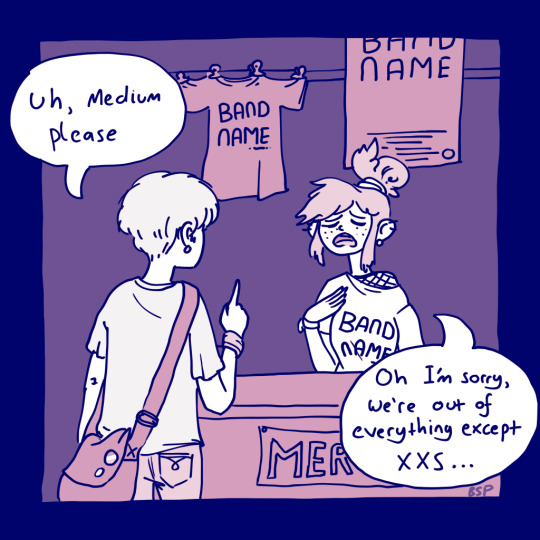
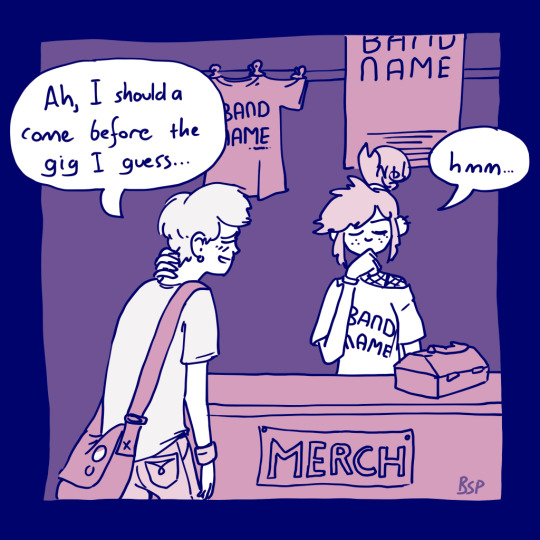

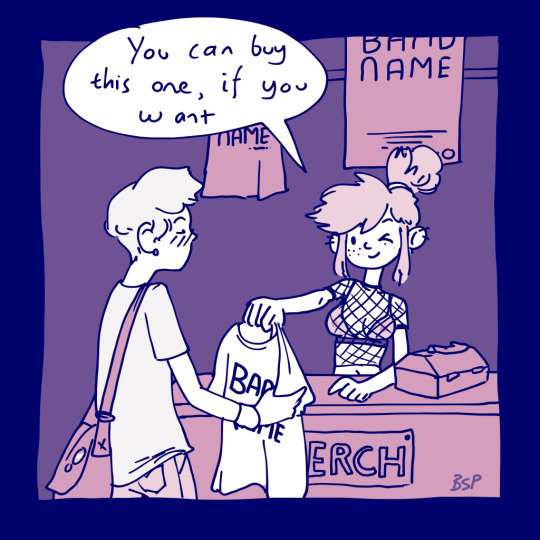
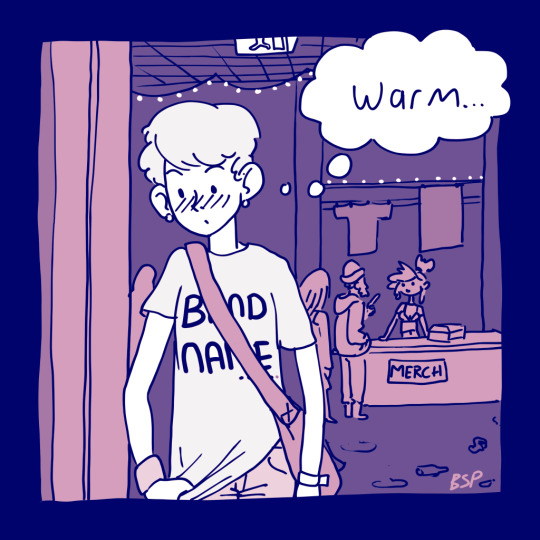
I think I dreamt this interaction, and I thought it would make a cute comic
100K notes
·
View notes
Text

Buckle up.
EmblemCon order 01/14, a bust (heh) for Koga_NoidZX on Twitter of their OC, Marivel
10 notes
·
View notes
Text
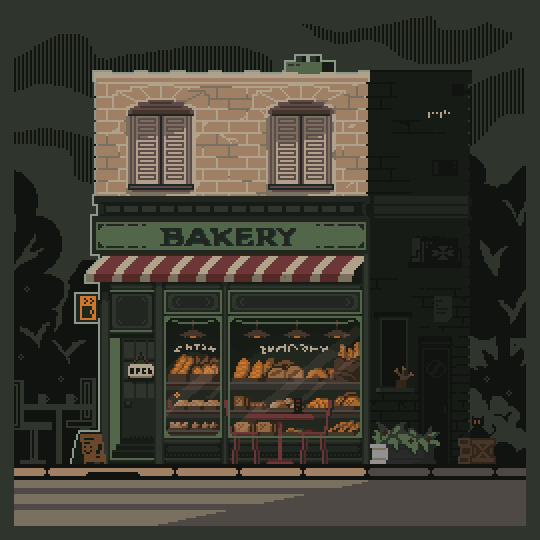
Bakery Storefront
Another storefront I did. The first one was a goldfish store in Hong Kong that I drew a few years ago and people love it. I'm think maybe this can be a whole series and I can draw different types of store and buildings.

img.2 A brighter and saturated version
After I finished this work I tried to twist the colour a bit to match the goldfish one (below), but eventually I still enjoy the original one more

img.3 Goldfish storefront
83 notes
·
View notes
Text
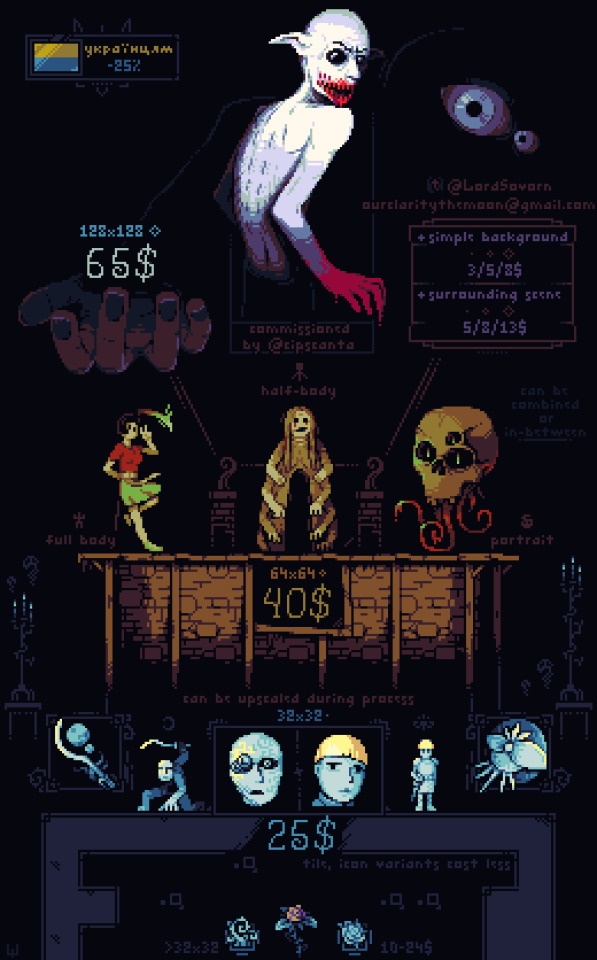
Commission sheet (updated)
Reblogs are very much appreciated <3

If you are looking for moody and dark pixelart, I'd love to draw for you :)
155 notes
·
View notes
Text

Finished this piece! It's a study of a scene from 'Lupin III' but with a Good Omens twist. Recently I was reminded of the movie again, and ever since I saw that little yellow car I've been thinking about recreating it with the yellow bentley instead.
I've also added it here for use as a free wallpaper. As with any of my work it's free for all personal uses ‼✨💕
3K notes
·
View notes


